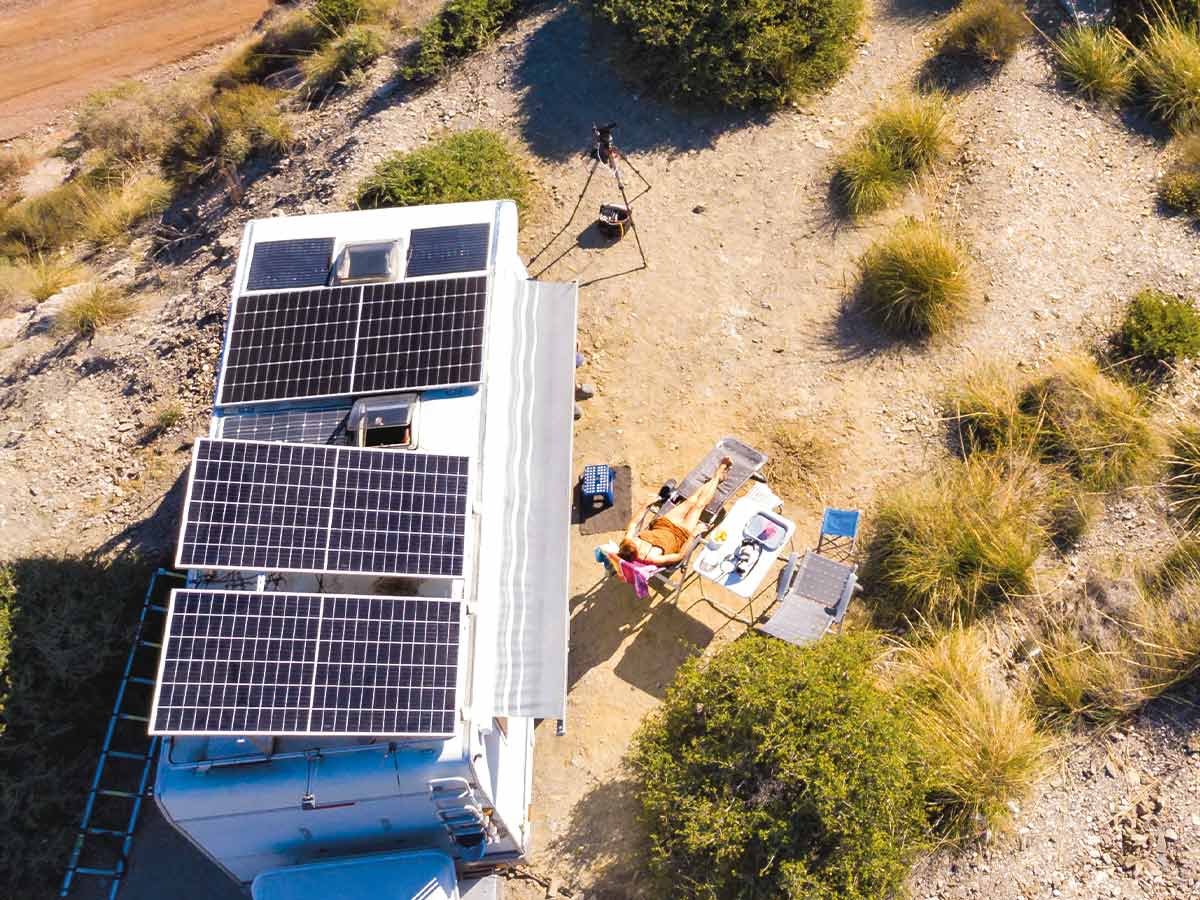Lisa Jansen takes a look at some of the RV battery options currently on the market and the pros and cons of each
For last month’s Getting into Gear column, we took a deep dive into solar power, including outlining the critical components of a solar system. One essential element of RV power is, of course, the house battery. These days, RVers have several options when it comes to batteries. With each type having its pros and cons, choosing the right one can be a challenge. In this article, we take a look at the different RV battery options and provide information to help you decide which option is right for you.
House battery vs starter battery
Before diving in, it’s important to note that we’re specifically focusing on house batteries in this guide. Almost all RVs have a house battery separate from the battery used to start the engine. However, if you’re buying an older or smaller RV, it’s worth double-checking. Having two separate batteries is important. First and foremost, using the same battery means you risk draining all the power by running your appliances and then being unable to start the engine when it’s time to leave.
In addition, the use cases are quite different. The starter battery needs to deliver a lot of power for a short amount of time, while RV house batteries need to provide various amounts of power throughout the day when the RV is in use. As a result, different types of batteries are best suited for each use case.
Deep Cycle batteries are generally the best option for house batteries since they provide a consistent amount of current over a long period.
Types of Deep Cycle batteries and their pros and cons
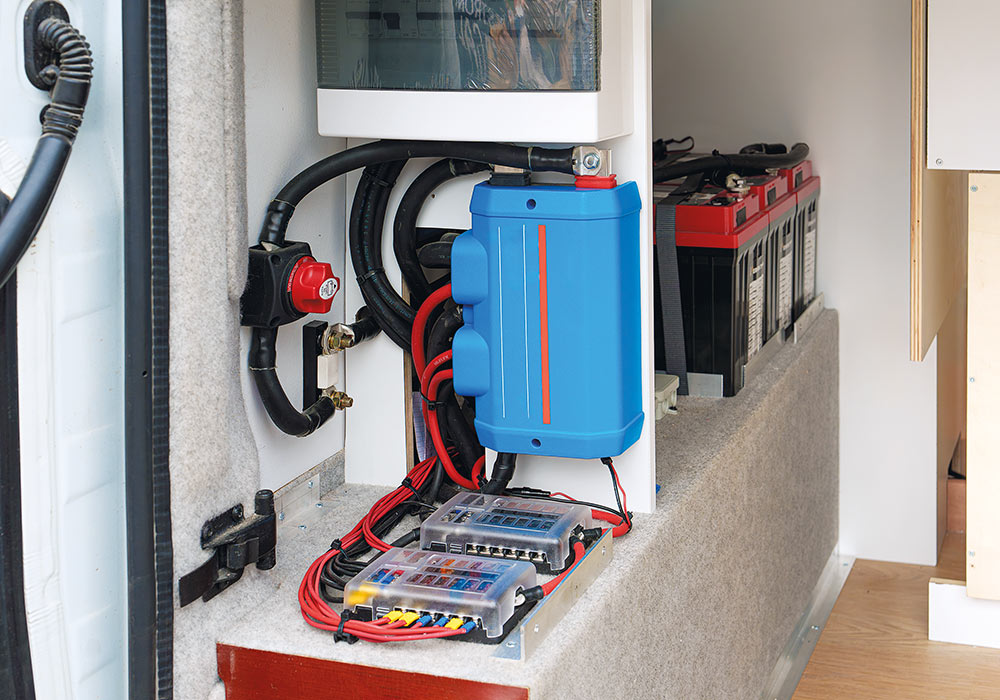
Four types of Deep Cycle batteries are commonly used in RVs: Flooded Lead-Acid batteries, Gel batteries, AGM batteries, and Lithium batteries.
Flooded Lead-Acid batteries: the time-tested workhorses
The Flooded Lead-Acid (FLA) battery, invented in 1859, was the first rechargeable battery. They’ve been used in motorhomes and caravans for many decades, making them a well-proven, reliable choice (though many would say there are better ones nowadays). FLA batteries generate energy from a chemical reaction between lead plates and sulfuric acid – hence the name. It’s important to know that this process releases a harmful gas, so the batteries must be kept in external storage areas, and gloves must be worn during maintenance.
FLA batteries are often the most affordable option when looking at the upfront purchase cost. Due to this cost-effectiveness and reliability, they are a popular choice, particularly for budget-conscious RV owners. However, FLA batteries require regular maintenance. They also have a shorter lifespan than the alternatives, meaning owners must be prepared to invest in new batteries more regularly. For these reasons, many RVers now opt for other batteries.
Gel (Lead-Acid) batteries: sealed and vibration-resistant
Gel batteries are a subtype of lead-acid batteries. Unlike FLA batteries, they are sealed and spill-proof, making them a good choice for a moving vehicle like an RV.
Also known as gel cell batteries, they incorporate silica into the electrolyte, creating a gel-like, spill-proof substance, which allows for installation in various positions and reduces fume emissions. This sealed design makes gel batteries virtually maintenance-free and an ideal fit for the confined spaces within an RV. While they come with a higher upfront cost than FLA batteries, the benefits of durability, resistance to vibration, and freedom from regular maintenance make gel batteries an attractive option for RVs.
AGM (Lead-Acid) batteries: the modern and maintenance-free option
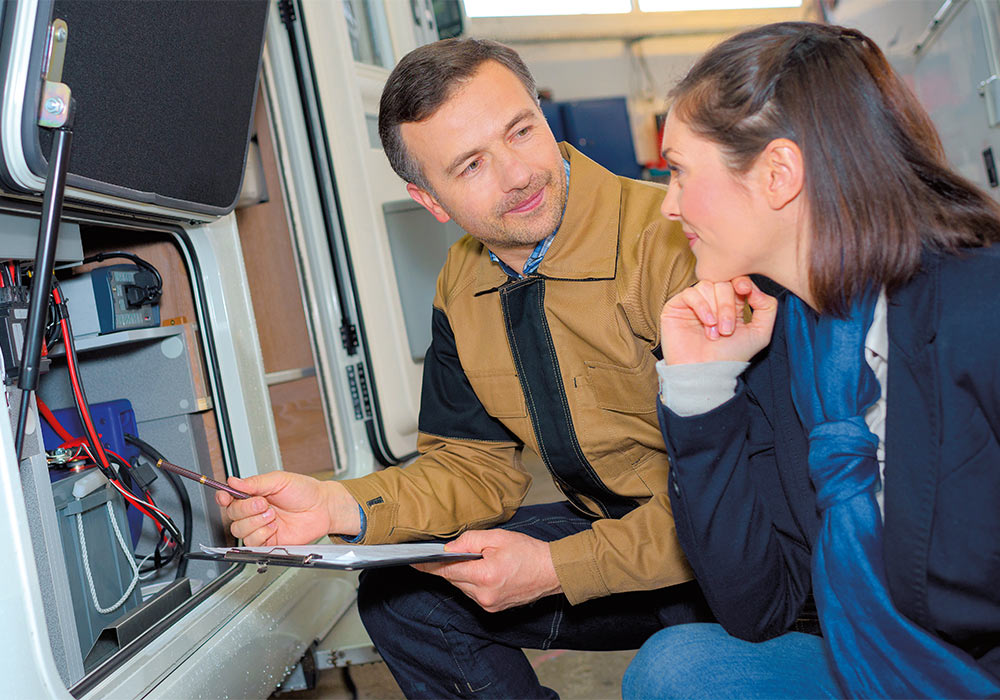
AGM (Absorbed Glass Mat) batteries have, until recently, been the top-tier choice for house batteries in RVs, offering a modern and efficient power solution. These sealed lead-acid batteries utilise a fibreglass mat soaked in electrolytes, eliminating the risk of spills and making them maintenance-free.
AGM batteries are well-suited for RVs due to their enhanced performance, durability, and ability to handle high charge and discharge rates effectively. Unlike traditional lead-acid batteries, AGM batteries don’t require regular water top-ups, ensuring hassle-free operation for RV owners. Although they come with a higher upfront cost than FLA batteries and are generally heavier, the extended lifespan and reduced maintenance needs make AGM batteries the option of choice for many RVers seeking a dependable power source that doesn’t completely break the bank.
Note: Never fully discharge your Lead-Acid battery. Whether it’s FLA, Gel, or AGM batteries, they all have one significant downside in common. Discharging them below 50% can seriously damage your battery and significantly reduce its lifespan. The deeper you discharge the battery, the more it will decrease the lifespan.
Unfortunately, avoiding discharging below 50% can be easier said than done, especially when your motorhome or caravan does not have a reliable battery gauge. Luckily, there’s now a battery option that does not have this issue.
Lithium Iron Phosphate batteries: the cutting edge
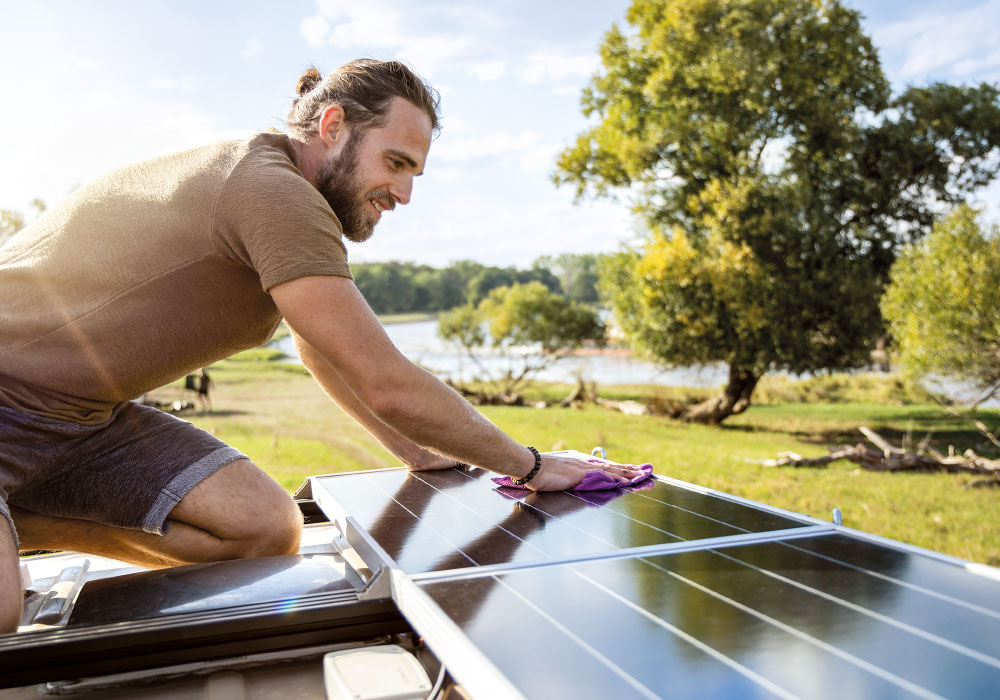
Lithium Iron Phosphate (LiFeP04) batteries are now the go-to batteries for a wide range of use cases and can be found in just about all modern rechargeable devices. They are also the latest and greatest when it comes to RV batteries.
Renowned for their longevity, lithium batteries outperform all other options with a significantly extended lifespan, enduring around 5000-plus charge/discharge cycles. They are also lightweight and compact, making them an excellent option for mobile homes. In addition, unlike all types of lead-acid batteries, they can be fully discharged without causing any damage to the battery, meaning there’s one less thing for RVers to worry about.
While the initial investment is significantly higher, the long-term benefits of reduced weight, increased efficiency, and minimal maintenance make it worth it for many RVers. In addition, due to their longer lifespans, lithium batteries often don’t end up costing more in the long run.
However, lithium isn’t always the best. They are known to not charge well in temperatures below 0 degrees Celsius, so those who often travel where temperatures are low might be better off with lead-acid batteries.
Another important factor to consider is that a lithium battery’s charge profile is different from that of a lead-acid battery and that RV chargers and solar controllers are still primarily designed for the latter. While this does not impact performance, it does result in the now common battery tracking apps showing unusual data. Most RV electricians who have installed lithium batteries have more than one story of an owner reporting their set-up as faulty when, in fact, it was just a matter of a different charge profile resulting in data different to what those familiar with lead-acid batteries are used to. If you’re switching from lead-acid to lithium, be prepared to re-learn some of the things you know about charge levels and battery health.
Choosing the right battery
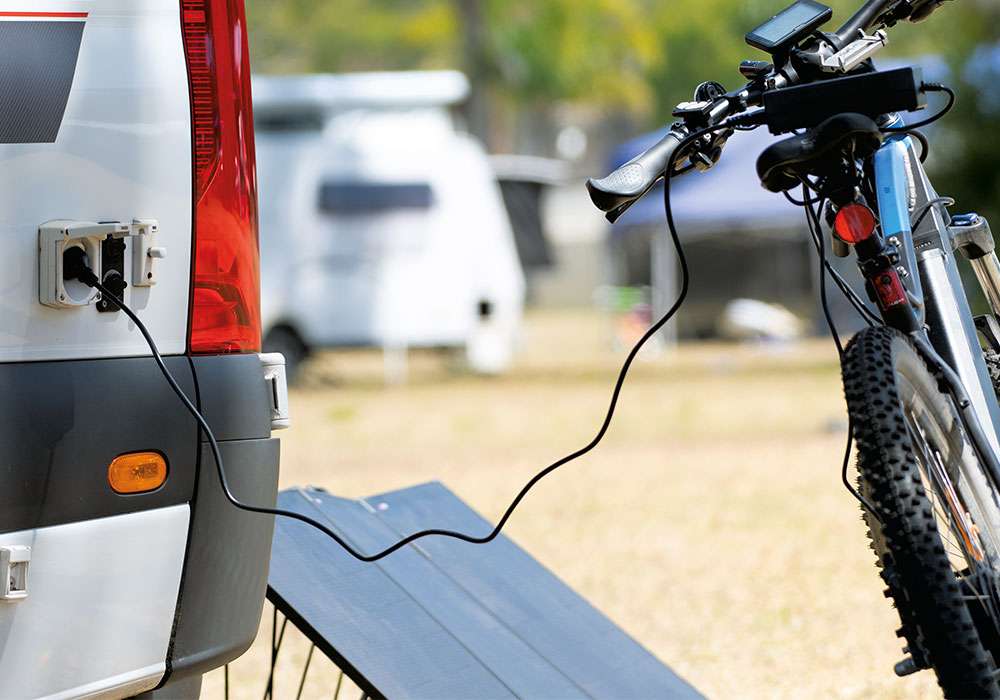
Which option is best for you ultimately depends on your personal requirements, preferences, and budgets. For those who have the funds and plan to own their RV for many years to come, LiFeP04 batteries will often be the best choice. For those who are more budget-constraint or planning more short-term, one of the lead-acid battery options might be better suited. In addition, you also need to consider how much battery capacity you need and where they will be stored in your RV, as that might rule out some options.
If you’re not sure which option to choose, consult an expert. However, make sure you talk to someone who’s an expert in all things RV power and batteries, not just batteries in general. That way, you can be more confident that you’re getting the right advice.
Whichever battery you choose, may they power many amazing adventures around our beautiful country.
Special thanks to Scott Wootton from Eastland Auto Electrical and Wayne Hunt from Motorhome Solar for providing insights for this article.

